
 Flash News
Flash News
Ersekë/ Elderly man struck by lightning, dies on the spot
KAS vendos hapjen e 229 kutive të materialeve zgjedhore të Qarkut Vlorë
Fraud and money laundering, 9 thousand square meters of land seized in Fushe Preza
Constitutional Court reviews TikTok shutdown decision
Murder of Ermir Dedja, two people arrested, smuggled the vehicle used by the perpetrators
The first female president of North Macedonia: the Balkans first, then Brussels
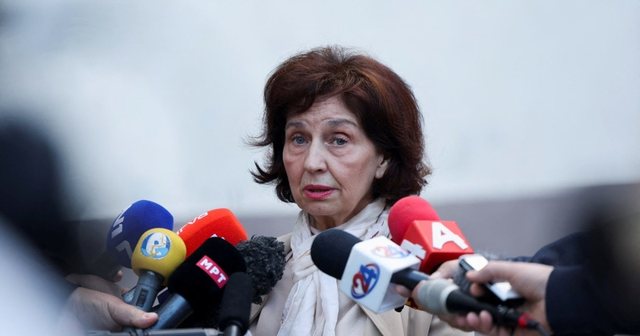
For the first time since independence in the 90s, North Macedonia elected a woman as president of the state. University professor Gordana Silanovska-Davkova, who is supported by the right-wing opposition party, VMRO-DPMNE, won the presidential runoff on May 8 against Social Democratic League candidate Stevo Pendarovski, until now president. In the first speech before the public, after the victory, Silanovska-Davkova said that she will be the president of all citizens, regardless of ethnic or party affiliation.
"From this moment on, I will act as the president of all citizens, all ethnic groups, all party members, those who are not in the party... because the president cannot unite the people and seek unity if she follows party lines" , she said.
He called on the neighbors to support, as he said, balkanization, help each other and be real politicians.
"We must start to understand each other, help each other, not ask for a veto, but ask for support. My roads first lead to the Balkans, and, of course, Brussels is not out either," said Silanovska-Davkova.
During the pre-election campaign, Silanovska-Davkova presented herself as a professor and as an independent representative in the Assembly. In her program "Macedonia is proud again", she writes that the Prespa Agreement, which changed the name of Macedonia to North Macedonia, "is an open issue", and that she will not use the word "of the north" in her public speeches. ” in the name of the state.
She does not support changing the Constitution, but in an interview with Radio Free Europe recently, she said that if Parliament approves the constitutional amendments - which would allow Bulgarians and five other ethnic minorities to become part of the Macedonian Constitution - she would respect them. Such changes in the Preamble of the Constitution are a condition for North Macedonia to continue negotiations for membership in the European Union. Within a period of ten days, Silanovska-Davkova, as president, will assign the mandate for the formation of the new Government to the candidate of the party, namely the parties that have the majority in the Assembly.
Silanovska-Davkova entered the second election round as the favorite, after winning twice as many votes as the candidate supported by the Social Democratic League, Stevo Pendarovski, in the first round on April 24 - when a total of seven candidates ran. In the runoff, Silanovska-Davkova won 363,085 votes and Pendarovski 180,499 votes. This was a completely opposite result compared to their first election duel in 2019, when Pendarovski won.
Pendarovski's current mandate expires on May 12. Until then, the Assembly must hold the session for the inauguration of the new president. In this case, the ceremonial session for the inauguration of the new president will be held by the deputies from the current composition of the Assembly. The chairman of the State Election Commission, Aleksandar Dashtevski, said that this institution will try to respect all the deadlines, so that on May 12 the country will have a new president.
Since the independence of North Macedonia, the country has had a total of five presidents. The first, Kiro Gligorov, had two mandates. For the first term, he was elected by secret ballot in the Assembly of Macedonia, on January 27, 1991. For the second term and all subsequent ones, he was elected in general and direct elections.
Gligorov won his second term in 1994 and was succeeded by Boris Trajkovski in 1999. He was president until his tragic death in a plane crash in 2004. The third president then became the then leader of the Social-Democratic League, Branko Cërvenkovski, who remained in that position for only one term. After him, in 2009, Gjorgje Ivanov, proposed by VMRO DPMNE, won the elections and held two mandates, until 2019, when Stevo Pendarovski was elected head of state./ REL
Latest news



"The real reason why young Albanians like me are coming to the UK illegally"
2025-06-04 20:07:39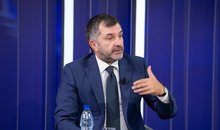
Government opens a legal path for investments in Army properties
2025-06-04 19:49:25
Elderly woman forgets stove on, house burns down in Vlora
2025-06-04 19:46:42
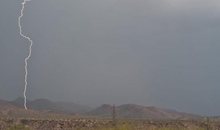
Ersekë/ Elderly man struck by lightning, dies on the spot
2025-06-04 19:12:55
Trump calls Putin, warns Ukraine that Russia will respond to attack on airbases
2025-06-04 19:05:56
Zelensky's Chief of Staff Meets with Secretary Rubio in Washington
2025-06-04 18:53:37

Rama opens a legal "path" for investments in Army properties
2025-06-04 18:41:33
How to think like a Stoic
2025-06-04 18:19:02
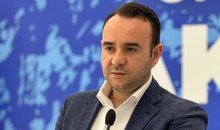
May 11th Elections/Balliu: The European Parliament condemned the electoral farce
2025-06-04 18:05:14

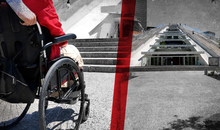
Tirana Pyramid “symbol of exclusion” for people with disabilities
2025-06-04 17:32:27



SPAK sends Evis Berberi, Belinda Balluku's right-hand man, for trial
2025-06-04 16:39:23
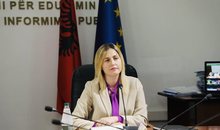
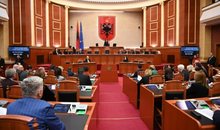
Reporting to the Parliament of independent institutions postponed indefinitely
2025-06-04 16:11:48
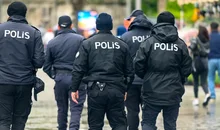
Turkish court jails five mayors of largest opposition party
2025-06-04 15:56:26


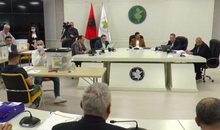
KAS vendos hapjen e 229 kutive të materialeve zgjedhore të Qarkut Vlorë
2025-06-04 15:04:47


Flax seeds, positive and negative effects of their consumption
2025-06-04 14:45:19
Housing costs are not increasing, apartment prices are
2025-06-04 14:39:07

A 51-year-old man was injured while working at the ferrochrome plant in Elbasan.
2025-06-04 14:14:12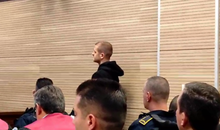
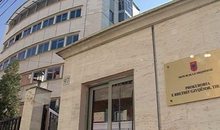



Italian university engulfed in flames, student evacuation begins quickly
2025-06-04 13:28:22
39-year-old woman disappears in Gjirokastra, husband: She didn't come home
2025-06-04 13:15:24
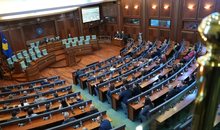
The saga of failures to constitute the Kosovo Assembly continues!
2025-06-04 12:56:25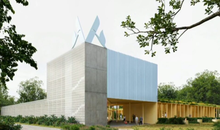
Government villas will be turned into luxury hotels
2025-06-04 12:51:21
Artan Tafani testifies for the first time against Laert Haxhiu's gang
2025-06-04 12:24:57

Scary figures: 8 in 10 Albanians believe the healthcare system is corrupt
2025-06-04 12:08:18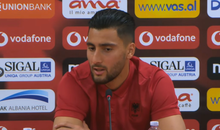
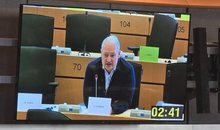

Constitutional Court reviews TikTok shutdown decision
2025-06-04 11:45:24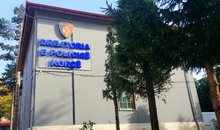
75-year-old man disappears in Korça! His wife: He has been gone for two days
2025-06-04 11:32:25




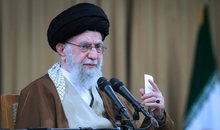
Iran rejects US demand for uranium enrichment
2025-06-04 10:15:32
Hoxha: An Albanian was caught distributing cocaine in the Russia-Ukraine war
2025-06-04 10:01:32
A safe was robbed, two people were arrested in Tirana
2025-06-04 09:54:36
Popular singer Jessie J diagnosed with breast cancer
2025-06-04 09:49:34
Young man arrested in Lazart for carrying gun and gun in apartment
2025-06-04 09:33:08
Call center fraud, two arrested in Tirana
2025-06-04 09:24:53
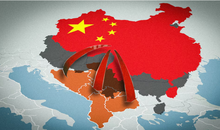
How is China exploiting the West's retreat to expand its presence in the region?
2025-06-04 09:07:32
Over a million pilgrims begin Hajj pilgrimage
2025-06-04 08:52:44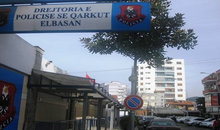
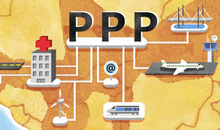
Banks ask the Bank of Albania to facilitate loans for PPPs in infrastructure
2025-06-04 08:29:07
Horoscope, what do the stars have in store for you today?
2025-06-04 08:16:36

Morning Post/ In 2 lines: What mattered yesterday in Albania
2025-06-04 07:47:17
Analyst: Political acts have damaged Albania more than criminal gangs
2025-06-03 23:00:19


Baçi: Rama was afraid of popular discontent, stole more votes than he thought
2025-06-03 22:10:14


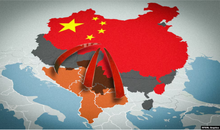

9 months after taking office, the Chief of the Guard, Ermal Onuzi, resigns
2025-06-03 20:14:09

15-year-old injured by gunfire at 'Ali Demi' pizzeria, police arrest perpetrator
2025-06-03 19:32:04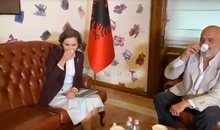

Why don't I want to spend a single day in Vlora?!
2025-06-03 18:26:21
Tech-stinction alert: Will humanity shrink to just 100 million people?
2025-06-03 18:02:23
EPP accepts Berisha's request: A fact-finding mission will be sent to Albania
2025-06-03 17:49:47
Three vehicles collide in Elbasan, several injured suspected
2025-06-03 17:45:02
Prosecutor Marsida Frashëri faces a request for dismissal at the KPA
2025-06-03 17:21:57
Nga Holanda në Finlandë, si operonte rrjeti shqiptar i drogës
2025-06-03 17:10:34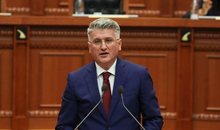
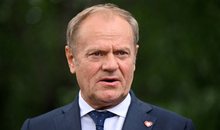
Tusk kërkon votëbesim në parlamentin polak më 11 qershor
2025-06-03 16:59:01

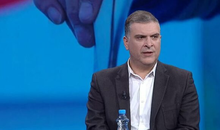
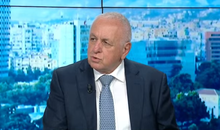


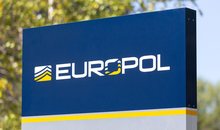
EUROPOL: Minors increasingly targeted by terrorist propaganda
2025-06-03 15:04:56
Kindergarten in Gramsh reopens where children were poisoned with salmonella
2025-06-03 14:59:16
